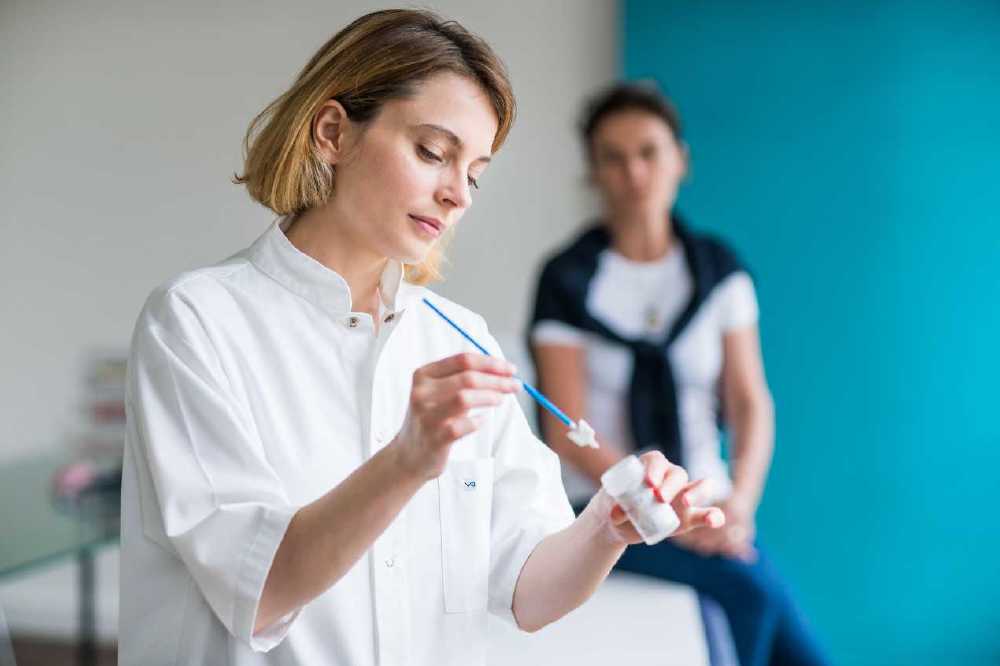By Dr Shazia Malik, Consultant Gynaecologist and Obstetrician at The Portland Hospital (part of HCA Healthcare UK)

Phanie / Alamy Stock Photo
All women and people with a cervix between the ages of 25 and 64 years should attend regular cervical screenings, otherwise known as a smear test. By doing this, you can catch abnormal cells in the cervix and have them removed before they can cause cancer changes. This should be every three years between the age of 25 to 49, and every five years if you’re aged between 50 to 64 years. For some, dependent on symptoms or medical conditions, it may be recommended to attend screenings more frequently.
You will usually receive the invite for a cervical screening through the post, but you can also choose to take the test privately with your gynaecologist should you wish.
A cervical screening checks the health of your cervix, which is the opening to your womb. A small sample of cells will be taken from your cervix to check for certain high-risk types of human papillomavirus (HPV). This is because the majority of abnormal smears are caused by these viruses. If these types of HPV are found, the sample is then tested for any changes in the cells of your cervix, which can be treated before they have the opportunity to develop into cervical cancer. If these types of HPV are not found, you will not need to undergo any further testing.
If you are pregnant, or could be pregnant, you will not usually need to have a cervical screening. Cervical screenings during pregnancy can actually make the test results inaccurate or harder to interpret, due to the cervix being a different texture and shape, and changes in cervical cells during this period. However taking a smear test (checking for high risk HPV viruses) or doing a colposcopy if you need a follow up for abnormal smears is safe and harmless in pregnancy - moreover it is really important if you were due for follow up of abnormal cells and then got pregnant.
If you've previously had an abnormal result from a cervical screening test, or you haven't had a screening test in the last three to five years, you may then need to have one whilst you are pregnant. Your gynaecologist might ask you to have the test at your first antenatal appointment. It is completely safe to undergo the smear test while you are pregnant, and it will certainly not affect your pregnancy or the health of your baby. This is especially important if you were due to have treatment for abnormal cells or if your doctor thought that removal of abnormal cells might not have been complete. We recommend this between 12 and 26 weeks, but please check this with your specialist and don’t put it off until after having your baby. It cannot cause a miscarriage or harm your baby.
If your results are positive for HPV or the test finds abnormal cells in your cervix, it does not mean you have cancer. A cervical screening is not a test for cancer, it’s to help prevent it from developing, so a HPV infection or abnormal cells will have no effect on your pregnancy or baby. You will not pass HPV on to your baby during pregnancy or birth.
If you have just gone through childbirth, you should wait for at least three months to have a smear test. This is because having a test too soon after labour may provide inaccurate results, due to the cervix cells changing during pregnancy and delivery, and inflammation of the cervix. You do not need to get a smear test simply because you’ve just had a baby, but should go if you’re due to have a test, or you’ve previously received an abnormal result.
It takes about 12 weeks for your cervix to go back to normal after birth - taking a smear before this time can miss abnormal areas or give an inaccurate result because the cells in the neck of the womb take time to normalise. Because of the changes caused by pregnancy and childbirth, it can be harder to interpret any changes accurately in the laboratory. Also some mild abnormalities can completely normalise by 12 weeks. However do get a date booked in at 12 weeks and put a reminder on your phone so that you don’t miss it in the very busy time after having your baby!
If you’re breastfeeding, you should also wait at least three months after having your baby to go for the test. The screening is completely safe while breastfeeding, and it doesn’t have any effect on the result. Because your oestrogen levels drop whilst breastfeeding, it can reduce the number of cells that we can get when taking a smear so allow this time for things to get back to normal. Do let the person taking your smear know you are breastfeeding, not least because you will need them to use plenty of lubrication so that it doesn’t feel too dry or uncomfortable.
Some women who may have had a traumatic birth experience may be concerned about attending their first cervical screening post-childbirth. If you’re feeling anxious about it, speak to your gynaecologist or GP/midwife about your concerns and questions. Having a child does not affect your smear result so don’t put it off because of this.
RELATED: Maya Jama urges women to get a smear test


